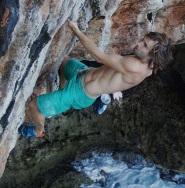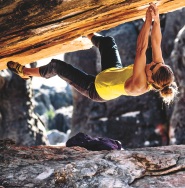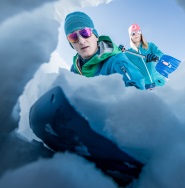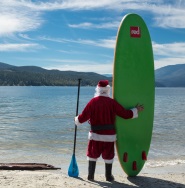
Why Mules?
David grew up in Vernon, BC, and went to SFU in Vancouver. When he graduated, he bailed on all the job interviews and job offers, and hitch-hiked to SoCal. In LA, the jazz and blues clubs down on the waterfront in Hermosa Beach and Redondo Beach were swinging every night. Typically these were housed on stilts over the water, in old abandoned fish packing plants, with recycled church pews for seating. The musicians in LA, because of the entertainment business, were incredibly abundant and talented.
What made it real were the friendships and community that the musicians obviously had with each other. Hanging around to closing at 3am as David was doing night after night, it was obvious. Icons, future or passé stars, all races, all ages—these folks were fine people. They were playing for beer money between paying gigs—this was their place, their community, and music was their craft.
However, David missed the mountains. While the city was vibrant, and brimming with life and talent, he could hear home calling out for him. British Columbia was all of 2,200 kilometres north, but its voice, amplified by the will of Mother Nature, was louder than all the music Los Angeles could offer.
 Flash forward to the late 1980s. After a 14 year run, David’s apparel business, Far West MountainWear, was making 600 GORETEX® jackets every 8 hours in Vernon, and another couple hundred a day in his Vancouver plant. Far West was public on the TSE, yet the Company was at a crossroads.
Flash forward to the late 1980s. After a 14 year run, David’s apparel business, Far West MountainWear, was making 600 GORETEX® jackets every 8 hours in Vernon, and another couple hundred a day in his Vancouver plant. Far West was public on the TSE, yet the Company was at a crossroads.
There was tremendous pressure to move to the city, mostly to tap into the talent that was there, but also because Canadian investors couldn’t visualize success coming from a small town.
He struggled. Did it make sense to bring his kids into the city? They were country people. David took the dogs, kids, and friends every weekend into the mountains for climbing, camping, hot springing, mountain biking, and chilling. Vancouver? What kind of memories would his family have there?
So instead of moving to Vancouver or El Paso or Hong Kong—all of which he considered—he moved to New Denver, a village of 500 people in the Selkirk Range. Somewhere in Osaka or Shanghai or Hanoi he says, he had a blinding realization that his home was in the mountains, and that his life’s work, his ‘craft’ was making ‘mountain life’ better.

In 1990, Valhalla Pure Outfitters was born.
 The first Valhalla Pure Outfitters was a tiny shop on Slocan Lake. David knew it was a winning idea: smaller trailhead communities would be better served by having dedicated shop owners who lived and played locally. Other like-minded owners saw promise in the model, and soon, VPO stores were dotting the map across BC and Alberta.
The first Valhalla Pure Outfitters was a tiny shop on Slocan Lake. David knew it was a winning idea: smaller trailhead communities would be better served by having dedicated shop owners who lived and played locally. Other like-minded owners saw promise in the model, and soon, VPO stores were dotting the map across BC and Alberta.
As VPO expanded further, operations were brought online to help serve even the most remote communities not only in BC and Alberta, but all across Canada. David helped store owners to grow and identify the latest disruptors in the outdoors industry—the brands that were pushing the envelope, the ones who were innovating and unafraid to make bold ideas come to life. In turn, the stores developed deep roots within the trailhead communities they served, becoming staples of their streets. They weren't just stores, they were basecamps on a first-name basis for adventurers.
The store owners, staff, and disruptors were dedicated to making 'mountain life' better. Never big box, never faceless, VPO became a kingdom of locally-grown adventurers with grit. Even when prevailing conditions were difficult, they would push on—no climb was too high, no trek too far.
A couple months ago, David came up with the idea of honouring those who came before, whose craft was to make ‘mountain life’ better, too.
In West Kootenay history, pioneers built railways, mines, dozens of tram lines, hundreds of towns, invented lift-serviced skiing, and built the worlds largest ski lift company that dominated for most of the 20th century. It goes on and on. Surely there had to be some great examples to honour?
And then...as good ideas do, it came in like turning on a light in a dark tent. The best example was not a human at all—it was ‘the Mule’.
 Ideally suited for pre-road, pre-rail transportation, mules have small, very hard and durable hoofs. They rarely if ever go lame. Mules can carry amazingly heavy loads up steep, rough trails and be ready to do it again every morning.
Ideally suited for pre-road, pre-rail transportation, mules have small, very hard and durable hoofs. They rarely if ever go lame. Mules can carry amazingly heavy loads up steep, rough trails and be ready to do it again every morning.
Mules get twice the grass mileage of horses, and are virtually unstoppable. But if they aren’t treated well, then they will stop until they have extracted the respect they deserve.
There’s a story of miners who forced a single mule to carry a very heavy load up to one of the mines near Sandon. The load was so high and so heavy, men had to stand on both sides to balance it along the trails. When the mule finally got it up to the mine, and was unloaded, she died. When the men arrived back in town, the townspeople were so upset, they beat up the men in the street.
If a grizzly or cougar threatens the farmyard or Village, not only will Mules make a horrific racket, they are completely fearless and will attempt to drive the intruder away. If unsuccessful, Mules will kill cougars by attacking by biting and trampling.
Our pioneers enjoyed a full and better life because Mules got the job done when no one else would—or could.
Knowing this story, David set out to meet Emmylou, a local Mule known for her hard work and dedication to helping her owners in the Kootenays. Emmylou has never been known to shy away from the hard work that the mountains have demanded, and it shows. Her posture is proud and her hooves are markers of service and loyalty.
Mules made the mountain life we enjoy today possible—and it remains their craft. We've been inspired by hardy and hard-working mules like Emmylou, we’re making mountain life better, 30 years and counting.









